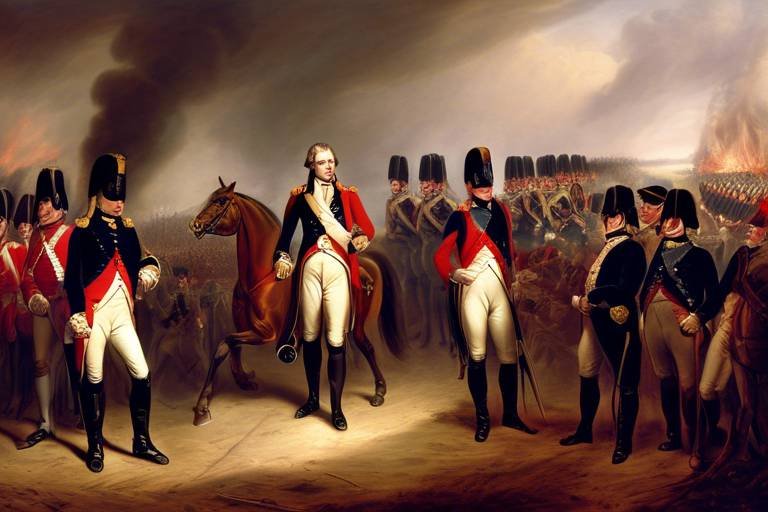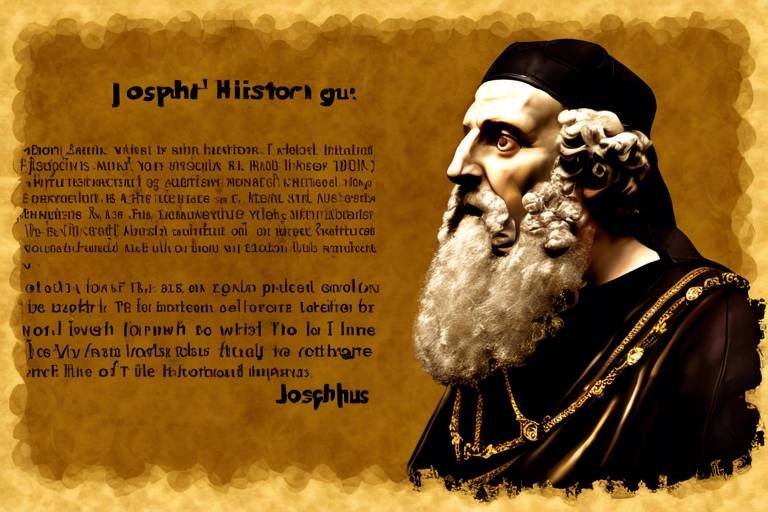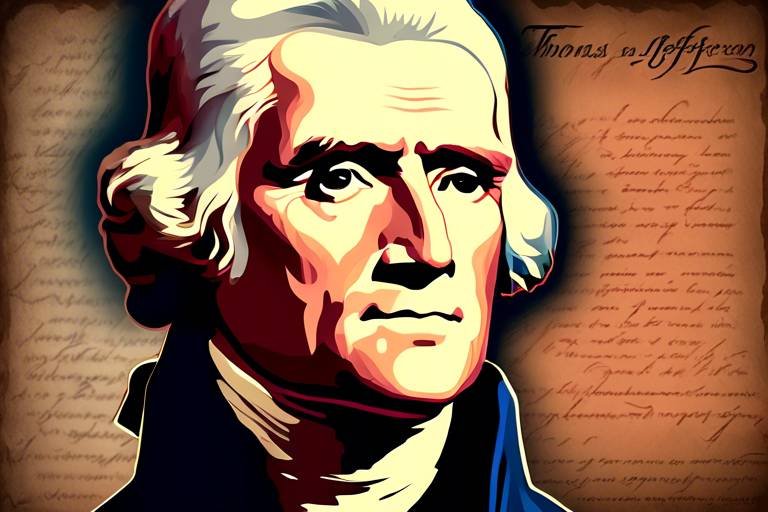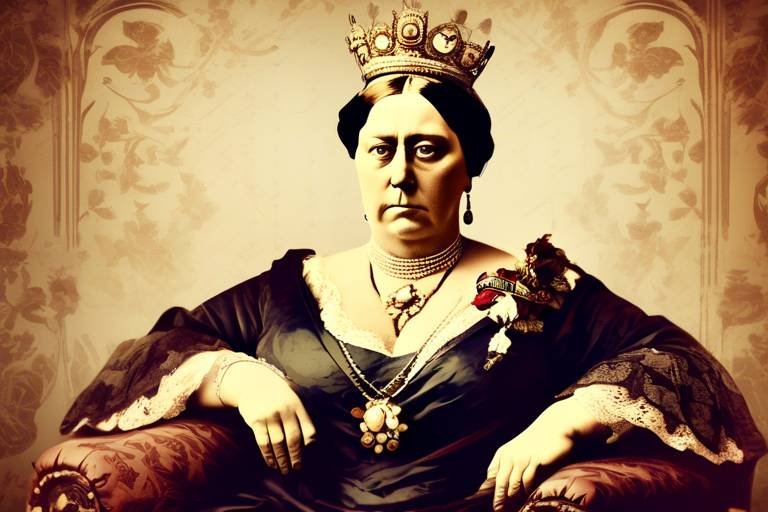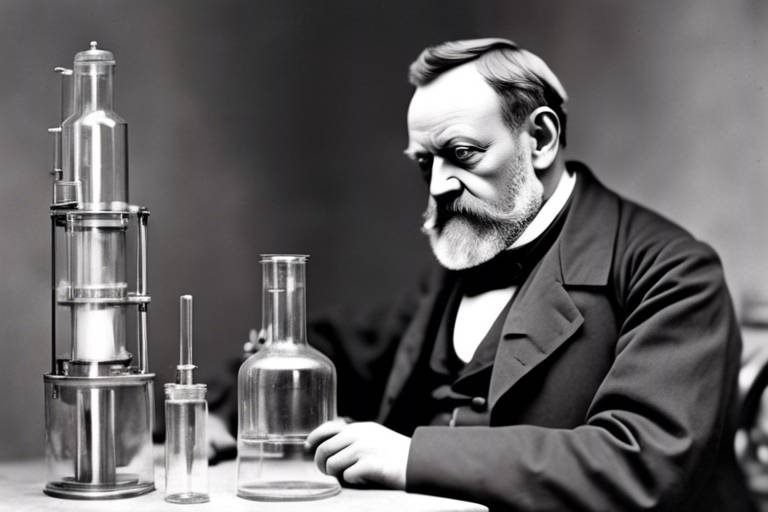Wellington: The Duke Who Defeated Napoleon
Arthur Wellesley, famously known as the Duke of Wellington, stands as a legendary figure in history for his pivotal role in defeating Napoleon Bonaparte and reshaping the course of European history during the tumultuous Napoleonic Wars. With his strategic brilliance and unwavering leadership, Wellington emerged as a formidable opponent on the battlefield, earning him a place among the greatest military minds of his time.
Wellington's journey towards greatness began with his early life and background, where his upbringing, education, and early career laid the foundation for his future military prowess and leadership abilities. Through perseverance and dedication, he honed his skills, preparing himself for the challenges that lay ahead.
One of Wellington's most renowned campaigns was the Peninsular War, where his tactical acumen and decisive victories, such as the Battle of Talavera and the Siege of Badajoz, showcased his military genius. His ability to outmaneuver and outwit his adversaries earned him both respect and fear on the battlefield.
The defining moment in Wellington's career came during the Battle of Waterloo in 1815, where he led the Allied forces to a resounding victory over Napoleon, effectively ending the French Emperor's rule and influence in Europe. This historic triumph solidified Wellington's reputation as a military mastermind and secured his place in history.
Beyond his military achievements, Wellington's political career and legacy also left an indelible mark on British and European history. His post-war contributions and lasting impact continue to be felt to this day, shaping the course of nations and influencing future generations.
Wellington's military reforms and innovations revolutionized warfare during the early 19th century, introducing new tactics and strategies that would be emulated by military leaders for years to come. His forward-thinking approach to warfare set him apart as a visionary in the field of military strategy.
In addition to his military prowess, Wellington's personal relationships and influence on key figures like King George IV further solidified his position in British society and politics. His charisma and leadership style endeared him to many, garnering him both admiration and loyalty from those around him.
Wellington's cultural legacy endures through monuments, literature, and commemorations that honor his remarkable achievements and contributions to history. His larger-than-life persona continues to captivate and inspire, serving as a reminder of the enduring impact one individual can have on the course of history.
Through his strategic planning, defensive tactics, and unparalleled leadership, Wellington carved out a legacy that transcends time, cementing his place as a true hero of his era. His legacy lives on, a testament to the power of determination, courage, and unwavering resolve in the face of adversity.
Wellington's story is one of triumph, resilience, and unwavering dedication to a cause greater than oneself. His victories on the battlefield and lasting impact on history serve as a testament to the enduring legacy of a man who rose to greatness in the face of overwhelming odds.
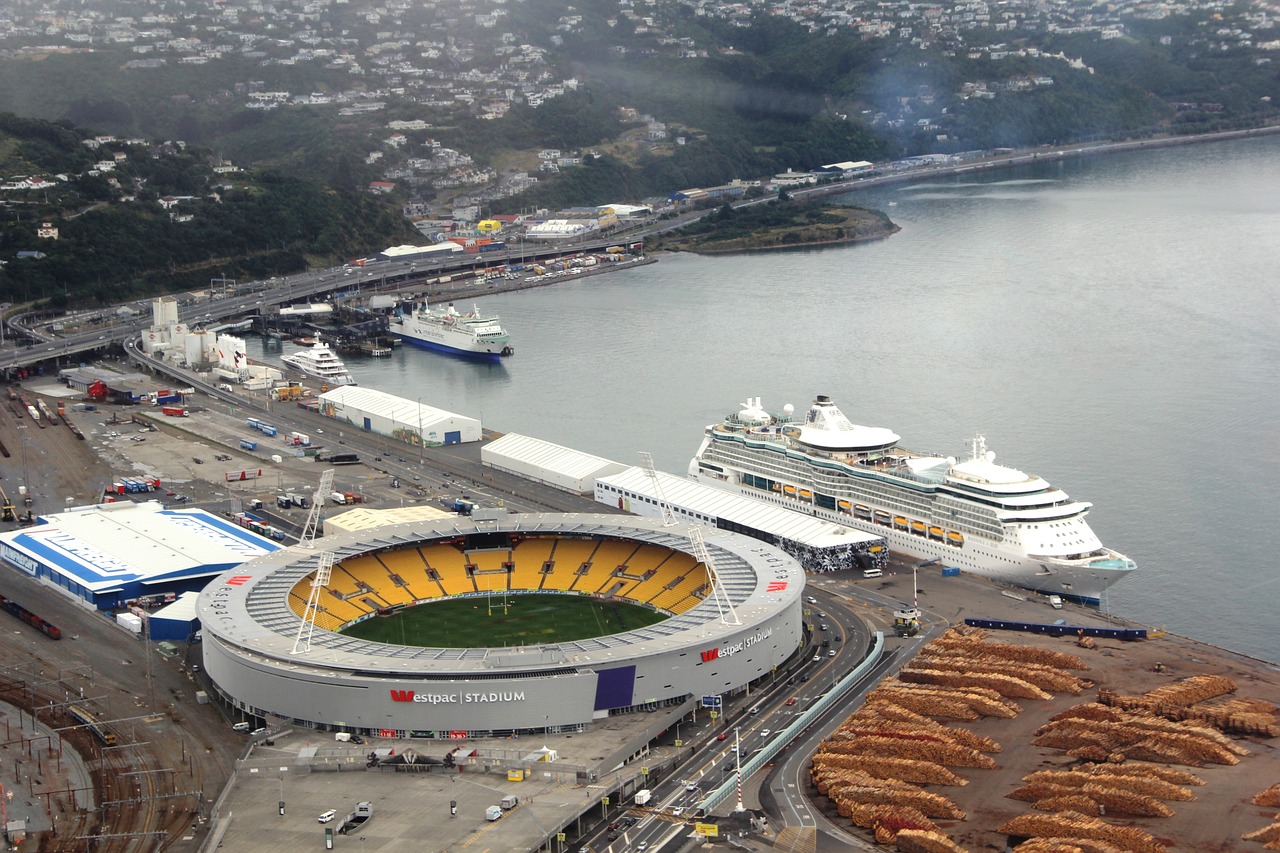
Early Life and Background
Arthur Wellesley, the Duke of Wellington, stands as a prominent figure in history for his pivotal role in defeating Napoleon Bonaparte and reshaping the course of European history during the tumultuous Napoleonic Wars.
Arthur Wellesley was born in Dublin in 1769 to an aristocratic Anglo-Irish family. His early years were marked by privilege and education at Eton College, followed by a brief stint at the prestigious military academy of Angers in France. These formative experiences laid the foundation for his future military prowess and leadership abilities.
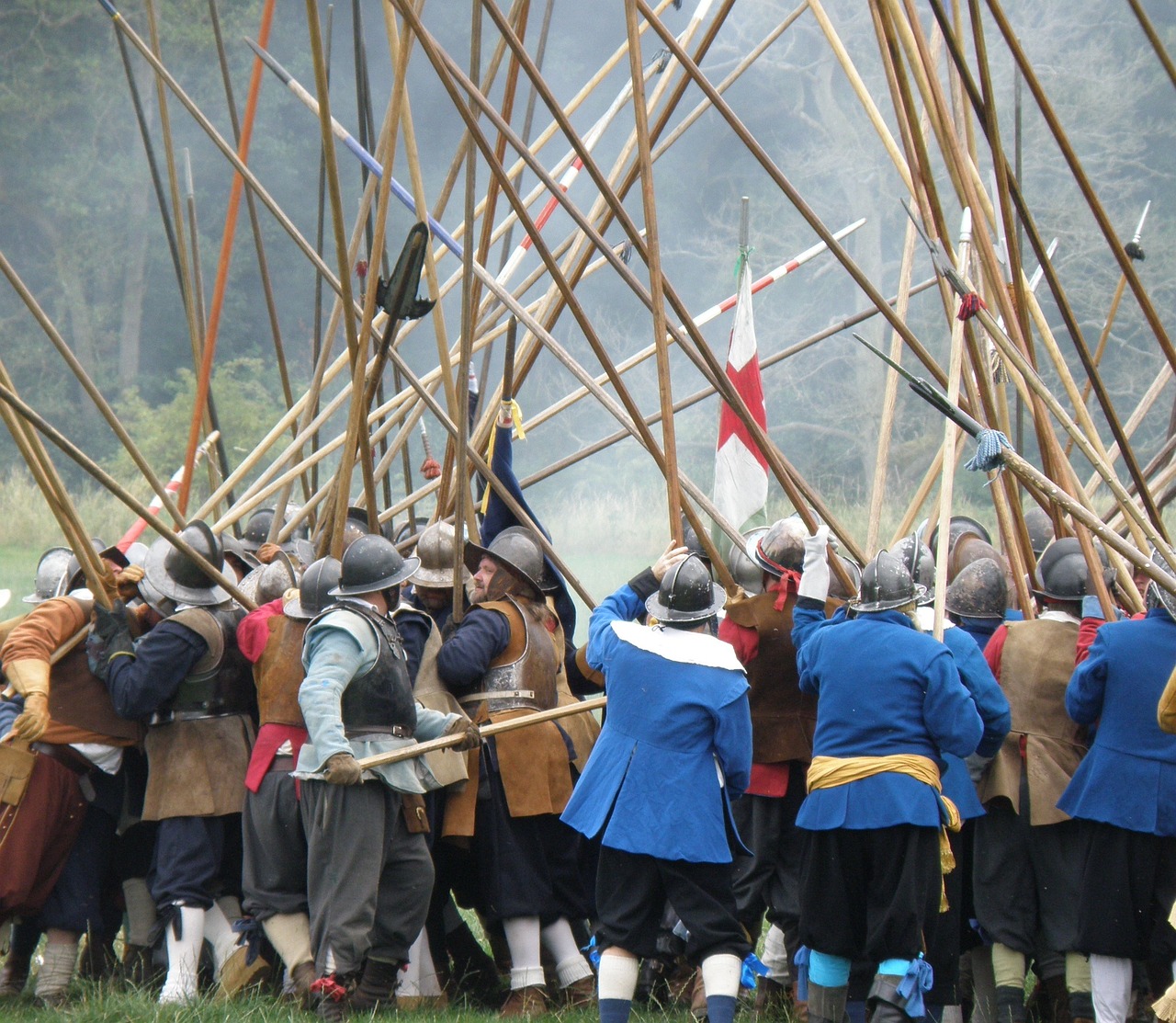
Peninsular War Campaigns
During the Peninsular War Campaigns, Arthur Wellesley, the Duke of Wellington, showcased his exceptional military skills and strategic brilliance that would eventually lead to his victory over Napoleon Bonaparte. This period marked a crucial phase in Wellington's career, solidifying his reputation as a formidable commander and shaping the course of European history.
One of Wellington's notable achievements during the Peninsular War was the Battle of Talavera in 1809. Despite facing a larger French force, Wellington's tactical acumen and leadership prowess enabled the Allied forces to secure a decisive victory. This triumph not only bolstered Wellington's standing within the military but also demonstrated his ability to outmaneuver and outsmart his opponents on the battlefield.
Another significant event during the Peninsular War was the Siege of Badajoz in 1812. Wellington's meticulous planning and strategic foresight were on full display as he orchestrated a successful siege that resulted in the capture of the heavily fortified city. This achievement further cemented Wellington's reputation as a master tactician and solidified his position as a key figure in the Allied campaign against Napoleon.
Throughout the Peninsular War Campaigns, Wellington's military innovations and adaptive tactics played a crucial role in securing victories against the French forces. His ability to analyze the battlefield, exploit weaknesses in the enemy's defenses, and make quick decisions under pressure set him apart as a military leader of exceptional caliber.
Wellington's success in the Peninsular War Campaigns not only highlighted his military prowess but also established him as a key figure in the fight against Napoleon's forces. His strategic brilliance and unwavering determination during this period laid the foundation for his future triumphs, culminating in the historic Battle of Waterloo.

Battle of Waterloo
The in 1815 marked a pivotal moment in European history, where the Duke of Wellington faced off against Napoleon Bonaparte in a decisive clash that would determine the fate of the continent. The battlefield of Waterloo, located in present-day Belgium, witnessed a fierce confrontation between the Allied forces led by Wellington and the French army under Napoleon's command.
Wellington's strategic acumen and leadership were put to the ultimate test as he orchestrated a carefully planned defense against Napoleon's aggressive tactics. The battle raged on for hours, with both sides engaging in intense combat, culminating in a dramatic showdown that would seal Napoleon's fate once and for all.
The Allied victory at Waterloo not only ended Napoleon's rule but also ensured the preservation of European stability and the balance of power on the continent. Wellington's unwavering determination and tactical brilliance on the battlefield solidified his reputation as one of the greatest military commanders of his time.

Political Career and Legacy
Arthur Wellesley, the Duke of Wellington, was not only a military genius but also a prominent figure in British politics. His political career was as illustrious as his military conquests, as he served as Prime Minister of the United Kingdom twice, in 1828-1830 and 1834. Wellington's legacy in politics was marked by his conservative views and strong leadership, earning him respect and admiration from his peers and the public.
One of Wellington's significant political achievements was his role in the passage of the Catholic Relief Act of 1829, which granted Catholic emancipation in the United Kingdom. This decision was controversial at the time, but it demonstrated Wellington's willingness to make bold and progressive reforms for the greater good of the nation.
Furthermore, Wellington's legacy extended beyond his time in office, as he continued to be a respected statesman and advisor to subsequent governments. His influence on British politics remained strong even after his retirement, with his opinions and counsel sought after by many in power.
In terms of legacy, Wellington's political career left a lasting impact on British governance and conservatism. His leadership style, characterized by pragmatism and decisiveness, set a standard for future leaders to follow. The Duke of Wellington's name became synonymous with strength, integrity, and steadfastness in the realm of politics, cementing his place in history as one of the most influential figures of his time.

Military Reforms and Innovations
Exploring the life and military achievements of Arthur Wellesley, the Duke of Wellington, who played a crucial role in defeating Napoleon Bonaparte and reshaping European history during the Napoleonic Wars.
Wellington's military reforms and innovations were instrumental in revolutionizing warfare during the early 19th century. One of his key contributions was the implementation of light infantry tactics, emphasizing speed and flexibility on the battlefield. By utilizing light infantry units effectively, Wellington was able to outmaneuver and outflank his opponents, gaining a strategic advantage in battle.
Furthermore, Wellington introduced new methods of troop organization and deployment, optimizing the efficiency and effectiveness of his forces. He emphasized the importance of discipline and training, instilling a culture of professionalism among his troops that set them apart from their adversaries. Wellington's focus on logistics and supply chain management also ensured that his armies were well-equipped and provisioned, enhancing their combat readiness.
In addition to tactical innovations, Wellington implemented strategic reforms that redefined the approach to warfare. He emphasized the importance of intelligence gathering, reconnaissance, and situational awareness, enabling him to anticipate and counter enemy movements effectively. Wellington's emphasis on defensive strategies, fortified positions, and strategic retreats when necessary demonstrated his keen understanding of military tactics and his ability to adapt to changing circumstances.
Moreover, Wellington's use of combined arms tactics, integrating infantry, cavalry, and artillery in coordinated attacks, proved highly successful in various battles. By coordinating different branches of the military seamlessly, Wellington maximized the strengths of each unit and created synergies that overwhelmed his opponents. His innovative approach to warfare set new standards for military strategy and influenced future generations of military leaders.

Personal Relationships and Influence
Arthur Wellesley, the Duke of Wellington, was not only a military genius but also a master of personal relationships and influence. His ability to navigate the complex political landscape of his time and forge strong connections with key figures played a significant role in his success both on and off the battlefield. One of the most notable relationships Wellington had was with King George IV. Despite their initial differences, Wellington's military victories and political acumen earned him the respect and favor of the king, leading to a close bond between the two.
Wellington's influence extended beyond the military realm, shaping British society and politics in profound ways. His reputation as a skilled commander and statesman garnered him immense respect among his peers and the public. Wellington's leadership style, characterized by decisiveness and strategic thinking, set him apart as a formidable figure whose opinions held great weight in matters of state.
Moreover, Wellington's relationships with influential individuals in European politics allowed him to navigate diplomatic challenges with finesse. His ability to build alliances and broker deals contributed to the stability of post-war Europe and secured his legacy as a statesman of great influence. Wellington's charismatic personality and commanding presence made him a revered figure both at home and abroad, earning him the loyalty and admiration of many.
In conclusion, Wellington's personal relationships and influence were integral to his success as a military leader and statesman. His ability to forge strong connections, navigate political complexities, and exert influence on key decision-makers solidified his position as one of the most prominent figures of his time.

Wellington's Military Strategy
Wellington's military strategy was characterized by a combination of meticulous planning, adaptability on the battlefield, and a deep understanding of his enemy's weaknesses. His approach to warfare focused on defensive tactics and strategic positioning, often utilizing the natural terrain to his advantage. Wellington was known for his ability to anticipate his opponent's moves and effectively counter them, turning their strengths against them.
One of the key elements of Wellington's military strategy was his emphasis on logistics and supply lines. He understood the importance of maintaining a well-equipped and well-fed army, ensuring that his troops were always ready for battle. By prioritizing logistics, Wellington was able to sustain his forces during long campaigns and sieges, giving him a significant advantage over his adversaries.
Furthermore, Wellington's leadership style was marked by a combination of discipline and flexibility. He instilled a sense of professionalism and cohesion among his troops, earning their respect and loyalty. Wellington's ability to inspire confidence in his soldiers and make swift decisions on the battlefield was crucial to his success in numerous engagements.
Additionally, Wellington was a master of defensive warfare, employing a strategy of attrition to wear down his opponents over time. He understood the value of patience and calculated risks, often waiting for the right moment to strike with precision and force. This approach was evident in battles like the Peninsular War and the Battle of Waterloo, where Wellington's defensive maneuvers ultimately led to victory.
In conclusion, Wellington's military strategy was a blend of strategic foresight, logistical expertise, and tactical brilliance. His ability to outmaneuver and outthink his enemies, combined with his unwavering determination, solidified his reputation as one of the greatest military leaders in history.

Wellington's Cultural Legacy
Wellington's Cultural Legacy encompasses a rich tapestry of influence that extends far beyond the battlefield. The Duke's impact on art, literature, and commemorative practices is profound, resonating through the centuries. Monuments dedicated to Wellington dot the landscape, serving as enduring symbols of his military prowess and leadership. These structures stand as testaments to his legacy, immortalizing his triumphs for future generations to admire and reflect upon.
Moreover, Wellington's cultural legacy is not confined to physical monuments alone. His presence looms large in literature, with numerous works celebrating his victories and character. Writers and poets have immortalized Wellington's exploits, capturing the essence of his strategic brilliance and unwavering determination. Through these literary works, the Duke's story continues to captivate readers, offering a glimpse into the tumultuous era of the Napoleonic Wars.
Furthermore, commemorations honoring Wellington's achievements abound, with annual events and ceremonies paying tribute to his enduring legacy. These gatherings serve as reminders of his pivotal role in shaping European history and preserving the values of freedom and democracy. Wellington's cultural impact transcends mere admiration, inspiring generations to uphold the ideals for which he fought so valiantly.
Frequently Asked Questions
- Who was the Duke of Wellington?
The Duke of Wellington, born Arthur Wellesley, was a prominent British military leader and statesman who rose to fame for his role in defeating Napoleon Bonaparte during the Napoleonic Wars.
- What were Wellington's major military achievements?
Wellington achieved significant victories in battles such as the Battle of Waterloo, the Peninsular War campaigns, and the Siege of Badajoz, showcasing his strategic brilliance and leadership skills.
- How did Wellington's military reforms impact warfare?
Wellington's military reforms and innovations revolutionized warfare tactics of the early 19th century, introducing new strategies that influenced future military doctrines.
- What was Wellington's cultural legacy?
Wellington's cultural legacy includes monuments, literature, and commemorations that honor his achievements and contributions to British and European history, leaving a lasting impact on society.

